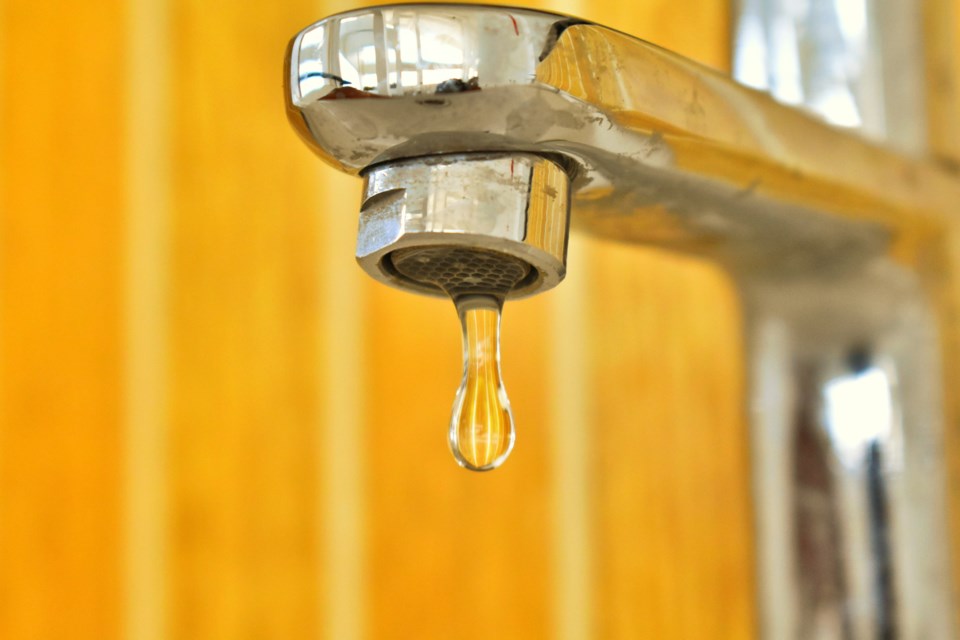There’s some flow to a city plan to improve water services to Indigenous communities.
Barrie councillors will consider a plan to consult with Indigenous communities, including the Barrie Native Friendship Centre and the Barrie Area Native Advisory Circle, on the possibility of dedicating 0.2 per cent of its water and wastewater revenue forecast in the 2022 budget toward Water First, and that organization’s efforts to improve water services in First Nations communities.
This plan would cost about $100,000 and could receive final approval from city council at Monday night's meeting.
“I strongly believe a one-time gift to support the training of water plant operators in First Nations communities would be a meaningful act of reconciliation by the City of Barrie in keeping with the spirit of the Truth and Reconciliation Commission’s call for ‘concrete actions that demonstrate real societal change’,” said Deputy Mayor Barry Ward, who initiated the plan.
“The cost would be about $1.77 for the average Barrie household in 2022, a small amount that has the potential to make a big difference in the lives of one individual and entire communities.”
In August, a similar plan was deleted from council’s agenda after some councillors expressed concerns about consultation with Indigenous groups.
Council instead decided to invite Water First, a Creemore-based NGO (non-government organization), to make a presentation to the city’s finance and corporate services committee on its program to train young Indigenous people from reserves to become certified in operating a water plant through a 15-month paid apprenticeship, which is where the $100,000 would be spent.
“Some of the concerns expressed by councillors in August had to do with consultation,” Ward said. “This new recommendation makes it clear that there will be consultation with local Indigenous groups before any action is taken.
“Water First already has an Indigenous advisory council, but they will also do more consultation. It is important to listen to viewpoints we might not have considered before making our final decision," he added.
Representatives of Indigenous communities would be invited to attend another finance and corporate services committee meeting, before December 2021, to provide their feedback on the proposal.
Water First would also be asked to consult with its First Nations Advisory Council and other partners on the proposal. They would then report back to the city before December 2021.
Access Barrie would be directed to enter into a three-year partnership with Water First for the purpose of marketing its organization on future signs along the waterfront, on the Canada Day website section and with appropriate marketing resources.
And finance department staff would investigate an option that would provide residents the opportunity to make a donation to the Water First organization on their water bill.
“Water First made their presentation at finance committee and I think it was very well received,” Ward said of the Sept. 14 meeting. “I think it helped clarify for councillors what the Water First program to train water plant operators was all about.”
Ward has said about 40 per cent of Ontario’s Indigenous reserves are currently operating under a boil water advisory. The city brings in just more than $60 million each year in water and sewer charges, he said, which includes user fees, service charges and rentals — and 0.2 per cent of the revenue equals about $100,000.
The average annual water/wastewater bill in Barrie is approximately $884 annually, meaning Ward’s plan would cost about $1.77 per household.
At budget time, council could decide whether it wants to add it to the bills through a slight increase in rates or just absorb it into the city’s costs for one year only — so future councils could decide whether to continue the contribution.
While the federal government pays for water infrastructure on First Nations, it doesn’t pay to train operators of the systems.
Ward says most Water First graduates return to their communities to work in the water system. The young people get employment, the community gets a better water system and doesn’t have to depend on people coming in from outside to maintain it.
In places such as Walkerton and North Battleford, where failures in the water system resulted in the illness of thousands of people and the death of some of them, the problem wasn’t that they didn’t have a water system. The problem was it wasn’t properly maintained.
The Truth and Reconciliation Commission didn’t specifically call for municipalities to fund water systems on reserves, Ward says, but it did talk about the need for all levels of government, including municipalities and First Nations, to work together in the spirit of reconciliation.



